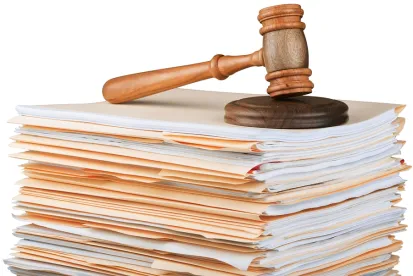A recent decision from the Western District of Arkansas reminds litigators that: (1) claims of undue burden must be supported by more than just conclusory allegations of a purported burden; (2) parties should interpose all applicable objections in their formal written responses and objections or risk waiver; and (3) courts take seriously preservation obligations whether triggered by regulation or the anticipation of litigation. See US Dept. of Labor v. Federal Armament and Neil Mehta (2:21-CV-02045 (W.D. Ark. June 28, 2022)).
The facts of the case are straightforward.
Federal Armament, LLC (Federal), headquartered in Fort Smith, Arkansas, sells firearms, ammunition, body armor, and other related equipment to customers as well as to other dealers and distributors. Mr. Mehta is Federal’s chief financial officer. The Department of Labor (DOL) brought this lawsuit against Federal and Mehta on February 26, 2021, alleging that the Defendants willfully violated the Fair Labor Standards Act (FLSA) by failing to pay their employees time-and-a-half for time worked over 40 hours per week and by failing to properly record their employees’ overtime hours.
In March 2022 counsel advised the court that a discovery dispute had arisen between the parties. The details of this dispute, put simply, are that the DOL requested certain employee timekeeping records from the Defendants; Defendants told DOL the records would be available for in-person inspection, and in reliance upon that representation counsel traveled from Dallas, Texas to Fort Smith, Arkansas to inspect the materials but, upon arrival learned that the time cards presented did not contain certain requested categories of information and lacked content from a time clock from which records had not been extracted. The Defendants claimed not to know how to extract the records from the time clock in the requested format, which resulted in counsel for the DOL traveling back to Dallas without viewing the records he had previously been told would be made available.
The court conducted a telephonic conference at the conclusion of which the court advised the parties it was of the view that the DOL was entitled to the materials at issue and that the Defendants should produce them. Approximately three months later, the DOL filed a motion to compel, claiming Defendants still had not produced the requested materials.
Ultimately, the court ruled in favor of the DOL. In reaching its decision, the court first addressed the operative legal standard, noting under the Federal Rules, “[p]arties may obtain discovery regarding any nonprivileged matter that is relevant to any party’s claim or defense and proportional to the needs of the case.” Fed.R.Civ.P. 26(b)(1). And noting further that district courts are vested with wide discretion in determining the scope of discovery.
The court then listed the serval discovery requests pertinent to the motion, specifically the DOL’s requested production of:
-
All documents showing the hours worked by each employee of Federal during each work week from March 2016 to the present;
-
All documents showing the amounts paid to each employee of Federal during each work week from March 2016 to the present;
-
Complete personnel files for all employees relating to employment and/or work performed on behalf of Federal from March 2016 through the present;
-
All payroll ledgers, timecards, time records, and calculations of payroll and compensation for all employees that worked at any time for Federal from March 2016 to the present; and
-
All agreements relating to an employee’s agreement to be paid at a base rate for however many hours worked.
Notably, Defendants did not contend the requested materials were irrelevant (although Defendants did claim discovery should be limited to a three-year period – a claim “flatly contravened by the language of the DOL’s complaint, which expressly alleged Defendants’ violations “may be continuing” and seeking damages “from March 25, 2016, to the present.”) (emphasis added). Rather, Defendants argued certain documents might contain employees’ confidential information (a concern easily remediated with a confidentiality agreement) and that responding to the requests would be unduly burdensome, in that the Defendants could not produce “individual timecard records for each employee which show the employee’s hours worked each week” without incurring “substantial time and effort.”
The court was not sympathetic to the Defendants’ claims that making this production would be unduly burdensome. According to the court, Defendants not only failed to raise such an objection in their formal responses to the DOL’s requests but also failed “[to] [] provide[] any evidence to the Court of how much time or expense would be required to produce these materials. ‘A party claiming requests are unduly burdensome cannot make conclusory allegations, but must provide some evidence regarding the time or expense required.’ (quoting Vallejo v. Amgen, Inc., 903 F.3d 733, 743 (8th Cir. 2018)).” Moreover, the court noted Defendants are required by federal law to “maintain and preserve payroll or other records containing . . . [h]ours worked each workday and total hours worked each workweek.” See 29 C.F.R. § 516.2(a)(7). And so, either Defendants failed to comply with their obligations under federal law or were in possession of responsive documents that must be produced.
This case provides us with a number of important take-aways. First, a party cannot avoid a discovery obligation by alleging in a conclusory fashion that compliance would be unduly burdensome. Indeed, the resisting party must come forth with evidence of the time, expense, and burden that would be incurred by complying with the request as written. Second, where a party fails to raise a particular objection (i.e., burden, scope) in its formal responses, the party may well have waived that objection. Therefore, it is good practice to provide thoughtful responses and objections – rather than boilerplate responses – to discovery demands and to include all objections that are applicable. Finally, one’s duty to preserve information can arise in a multitude of ways beyond the reasonable anticipation of litigation. It is critical therefore to understand whether your client’s document retention is subject to any statutory or regulatory preservation requirements.



 />i
/>i

